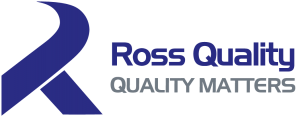Supervisor
One of the roles identified in the NEC4 is that of the Supervisor, a job title that is not found in other major standard forms of contract used in the construction industry. A frequently asked question is what does this role actually entail and who is this person?
As with other roles in the NEC4, although an individual should be named, it is the scope and requirements of the role that should be concentrated on.
The role of Supervisor is one of four primary roles required to be fulfilled by the NEC4, the others being Employer, Project Manager and Principal Supply Chain Partner (PSCP). The role of Supervisor is, primarily, akin to that of a resident engineer or architect in checking that the works are in accordance with the contract. Depending on the size and nature of the works it might be that a clerk of works or inspector or similar person could be appointed to this role.
The role can be divided into testing on the one hand and defects management on the other hand. The testing part of the role includes inspections, both on and off site. The tests and inspections to be carried out and who carries them out will be identified either in the Works Information or required by the law applicable to the contract. The Supervisor must therefore be sufficiently experienced to understand and identify all these requirements.
The carrying out of tests and inspections by either the Supervisor or PSCP should be notified to the other in reasonable time before the test or inspection starts. There is no requirement for the party carrying out a test or inspection to wait for the other to attend, providing sufficient notice has been given. The tester carries out the necessary actions at the prescribed time, records the results and gives a copy to the other. If all this is done in the spirit of mutual trust and co-operation required by clause 10.1 of the NEC4 then that should be the end of the matter.
There is a requirement for the Supervisor to do tests and inspections without causing unnecessary delay to the works or a payment. Use of the Accepted Programme, the proper giving of the notices required and the spirit of mutual trust and co-operation should go a long way to avoid such differences.
Where any test or inspection is required of Plant or Materials before the goods are brought to the Working Areas then the Supervisor has a vital role to play. Regardless of whether the Supervisor carries out the test or inspection himself or whether it is done by the PSCP or one of the PSCP’s suppliers or subcontractors is quite clear that such Plant or Materials cannot be brought to the Working Areas until the Supervisor has notified the PSCP that the test or inspection has been passed. Where the off-site test or inspection has been passed should the Supervisor not issue the necessary notice to the PSCP, the Plant or Materials cannot be delivered and a delay could result. The Supervisor must therefore be aware of such requirements and make sure that he issues the required notices in a timely manner. It must be hoped that mutual trust and co-operation will mean that the PSCP reminds the Supervisor of this requirement before any delay was allowed to occur, but remember that the PSCP is not obliged to provide this reminder and cannot be held at fault if he doesn’t.
The only power that the Supervisor has to issue an instruction to the PSCP is to instruct the PSCP to search for a defect. This type of provision is common in construction contracts and users should not find it difficult to follow. It is of course necessary for givers and receivers of such instructions to understand what the implications may be. What users would probably expect is what they will find, being that if no defect is found then subject to an exception regarding timing, a compensation event would arise. If a defect is found then of course the Compensation Event wouldn’t arise.
With regard to any defects that the Supervisor finds then they are obliged to immediately notify the PSCP of that defect. Common sense and to that extent mutual trust and co-operation suggests that an appropriate way of notifying and recording defects should be established for each project, including mechanisms that are administratively workable by those responsible. This is what the vast majority of users do in practice. In respect of notifying defects the Supervisor should remember that the PSCP also has a responsibility to inspect for and notify of defects.
The Defects regime makes the Supervisor responsible for the issue of one of the most important certificates required by the NEC4, i.e. the Defects Certificate. It is the Defects Certificate that brings most of the PSCP’s obligations under the NEC4 to an end. The timing of the issue of this certificate is crucial and impacts on the timing of the last payment to the PSCP.
The Supervisor has a further duty to mark Equipment, Plant and Materials which are outside the Working Areas when specified circumstances arise. These circumstances arise when the contract has identified such items for payment before they are brought to the Working Areas. The process for marking should be set out in the Works Information.
The Supervisor’s role involves examining drawings and specifications and / or bills of quantities and:
- Notifying the Client of any differences between the drawings and the specifications and bills of quantities.
- Establishing quality standards for workmanship and materials.
The Supervisor will visit the site and record the following:
- any difficulties in respect of access to the site;
- the possible effects of work on adjoining and / or adjacent properties on the site.
- confirm with the Client, benchmarks to be used;
- the building line;
- any other setting out points
The role also involves inspecting the following for compliance with the contract documents and report any non-compliance with the Client:
- setting out and levels;
- all materials delivered to the site for incorporation into the works;
- all building, mechanical and electrical work in progress;
- when instructed by the Client, the premises of the PSCP, Sub-contractor and suppliers where components are being manufactured off-site and the components on delivery to the site.
The Supervisor’s remit includes establishing and maintaining records in respect of:
- daily / weekly site diary;
- weather and working conditions;
- site labour state;
- all delays on site, for example weather, industrial action, disruption resulting from changes;
- progress reports as required;
- progress of works against construction programme;
- progress of public utilities (gas, water, telephone, electricity etc);
- drawings receipt register;
- Supervisor’ directions;
- costs made and associated results;
- inspection carried out on sections of the works;
- differences between drawings provided and work as-built;
- work liable for claim as dayworks or other extra;
- work liable to be covered requiring checking/ measurement;
- Liaise with PSCP in respect of the provision of site accommodation, compound, stores etc in accordance with the contract documents.
- Check submitted daywork sheets and approve / reject as appropriate on basis of work done or not.
- Verify testing requirements with Client and ensure that the contractor is aware of all requirements;
- witness all tests required by the Client being carried out, including retests, report to Client.
- Inform the Client of discrepancies in documents and drawings when they become apparent.
- Provide information to Lead Consultant for inclusion in Health & Safety File.
- Health & Safety Plan
- Provide information to contractors for inclusion, implementation and development of Health & Safety Plan.
The Supervisor will also witness all commissioning procedures, testing and working demonstration for compliance with contract documents and report to the Client, inspect the record drawings provided by the PSCP and ensure that they do not differ from the records held by the Supervisor.
On the PSCP’s request, the Supervisor will inspect the work concerned and subsequently complete and issue their schedule of ‘unsatisfactory or incomplete work’. When the Supervisor and the PSCP’s site representative are satisfied that virtually all the items on the schedules have been made good, a penultimate inspection will be held. Such an inspection will be the main technical inspection attended by the PSCP, the Project Architect, the Project Engineer, Client’s Technical Representatives, etc.
The Supervisor may be called upon to carry out any of the following:
- Offer practical construction advice and process guidance to the project team and take part in scheme design and technical review processes.
- Liaise with the PSCP and Designers to establish tests and inspections to be carried out in accordance with Works Information and the PSCP’s Works Information for his design; as part of the scheme Quality Assurance and acceptance procedures.
- Monitor site investigation operations.
- Monitor and liaise with Utilities carrying out pre-construction diversions and installation of new services.
- Monitor and inspect and accept PSCP enabling and other pre-construction work.
- Issue Defect Notices to the PSCP as necessary.
- Inform the Project Manager of all defects and unacceptable construction practices by the PSCP and other members of the supply chain.
- Keep records of tests, inspections and acceptances for inclusion in the Health & Safety File as may be required by the Construction Design Management Co-ordinator.
- The Supervisor notifies the PSCP of his tests and inspections before it starts and afterwards notifies of its results. The Supervisor may watch any test done by the
- The Supervisor does his tests and inspections without causing unnecessary delay to the work or a payment which is conditional on a test or inspection being successful.
The Supervisor also bears responsibility for notifying the Project Manager:
- When defects have been corrected
- Those defects the PSCP has not rectified within the defects correction period.
- Those Defects the PSCP is unable or unwilling to correct.
- Tests and inspections performed and accepted
- Those tests and inspections performed but results found to be unacceptable.
In summary the Supervisor’s role is that of an inspector who tests and inspects the works for compliance with the contract, and who manages the defects process and checks and marks materials off site so as to protect the Employer’s interests.
Consultant Supervisors
AECOM |
 Currie & Brown (UK) |
 Ross Quality |
 Pick Everard |
